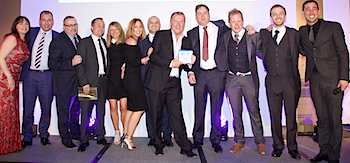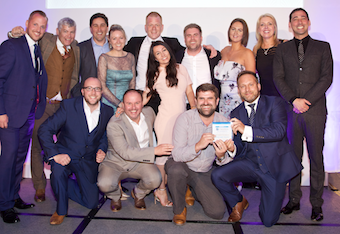Gigaclear has secured £111m in additional equity funding to build new full fibre networks in rural Britain, enabling a significant acceleration in the build rate of ultrafast Fibre-to-the-Premises (FTTP) networks across multiple counties, reaching hundreds of thousands of people.
The funding has been raised from existing shareholders and one new institutional investor.
Existing shareholders Infracapital and Woodford have committed to investing £60m and £15m respectively with other shareholders contributing a further £1m. RPMI Railpen, the investment manager for the Railways Pension Scheme, is the new institutional investor, putting £35m to work in the company.
"In recent months we have won significant tenders to deliver our broadband network to hundreds of thousands of homes and businesses across Devon, Somerset, Gloucestershire, Herefordshire and Northamptonshire through the Government-backed BDUK programme," said Matthew Hare, Chief Executive, Gigaclear. "The new investment will fund the first stage of these new networks, along with other commercial network build projects.
"Full fibre is the future. This latest round of investment will enable Gigaclear to step up our speed of network delivery and is a clear signal of the confidence investors have in our continued expansion and success.
"Millions of rural homes and businesses across the country need better broadband and we want to reach as many of those in rural areas as quickly as possible. Our pure fibre network transforms lives by providing access to the fastest Internet speeds to be found anywhere in the world and technologically future-proofing these rural communities for years to come."
Ed Clarke, Co-Founder and Director, Infracapital, commented: "Gigaclear has made significant progress since we made our original investment and we are proud to be supporting the team as they roll out this essential infrastructure in underserved areas of the country."
Greg Mesch, CEO of fellow fibre trail blazer CityFibre, commented: "This is not only welcome news for the rural communities stranded on unsuitable copper infrastructure, it also serves to highlight the crucial role and growing momentum of competitive full fibre players and the rapidly increasing market support for full fibre investment.
"Alternative network providers like Gigaclear and CityFibre are playing a central role in transforming the UK's digital infrastructure. This will ultimately contribute towards safeguarding the nation's future as an economic force in a digital world."

 This year's sparkling Comms Dealer Sales & Marketing Awards extravaganza (staged at London's Park Lane Hotel on May 4th and sponsored by KCOM) reflected the growing strength of the channel's sales organisations with more entries than ever mirroring a 25% increase in the scale of the event itself on last year.
This year's sparkling Comms Dealer Sales & Marketing Awards extravaganza (staged at London's Park Lane Hotel on May 4th and sponsored by KCOM) reflected the growing strength of the channel's sales organisations with more entries than ever mirroring a 25% increase in the scale of the event itself on last year. "Channel sales are as good as they have ever been as the record breaking Comms Dealer Sales & Marketing Awards has underlined," stated Comms Dealer Editorial Director Nigel Sergent.
"Channel sales are as good as they have ever been as the record breaking Comms Dealer Sales & Marketing Awards has underlined," stated Comms Dealer Editorial Director Nigel Sergent. The current industry obsession with Big Data and Business Intelligence plays directly into the hands of Sentel, according to CEO Ger Connery who has spent two decades working with telecoms analytics in the cloud.
The current industry obsession with Big Data and Business Intelligence plays directly into the hands of Sentel, according to CEO Ger Connery who has spent two decades working with telecoms analytics in the cloud.